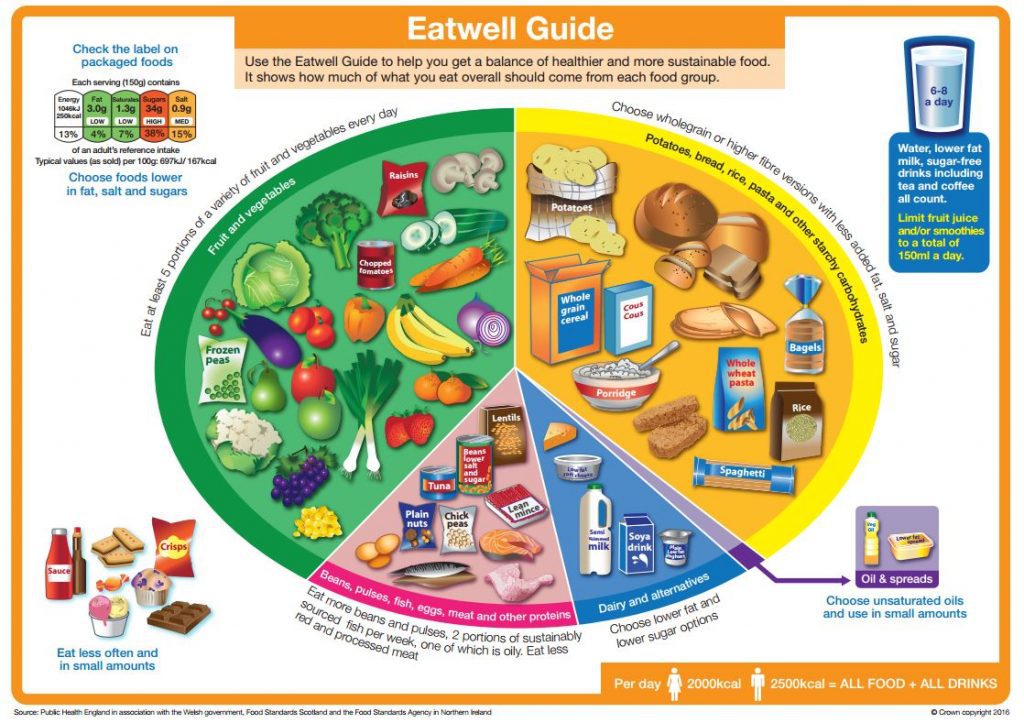General healthy eating for pregnancy
- Make sure your meals are balanced. The Eat Well plate above demonstrates the ideal ratio of food types. A Mediterranean-style diet of around 25% carbohydrate, 25% protein/fat and 50% vegetable food stuffs has also been shown to improve blood glucose levels.
- Eat regular meals, aiming to include high fibre and wholegrain options with less added fat, salt and sugar.
- Avoid sugary foods and drinks.
- Eat at least 5 portions of fruit and vegetables each day.
- Keep oils and spreads to a minimum, choosing unsaturated varieties.
- Aim to include 3 portions of either milk (200 ml), yoghurt (150 g) or cheese (30 g) each day, choosing lower fat versions unless you are underweight.
- Take the visible fat off meat, skin off chicken and avoid cooking fat wherever possible.
- Beans, lentils and chickpeas are a good source of lean protein and fibre.
- Include at least one portion of oily fish such as salmon, sardines, mackerel, trout, herring each week.
- Follow food safety for pregnancy advice regarding unpasteurised milk and cheeses, certain types of fish, liver and pate.
- You should be advised to take supplements of vitamin D for the duration of your pregnancy and folic acid during the first twelve weeks.
- Limit your intake of vitamin A and avoid supplements that contain it, such as fish liver oil. High levels of vitamin A can harm your baby.
- If you drink alcohol heavily during your pregnancy, your baby could develop a group of problems known as Foetal Alcohol Syndrome which include poor growth, learning and behavioural problems. As a consequence, UK guidelines recommend that women should not drink alcohol at all during their pregnancy.




Leave a Reply
You must be logged in to post a comment.